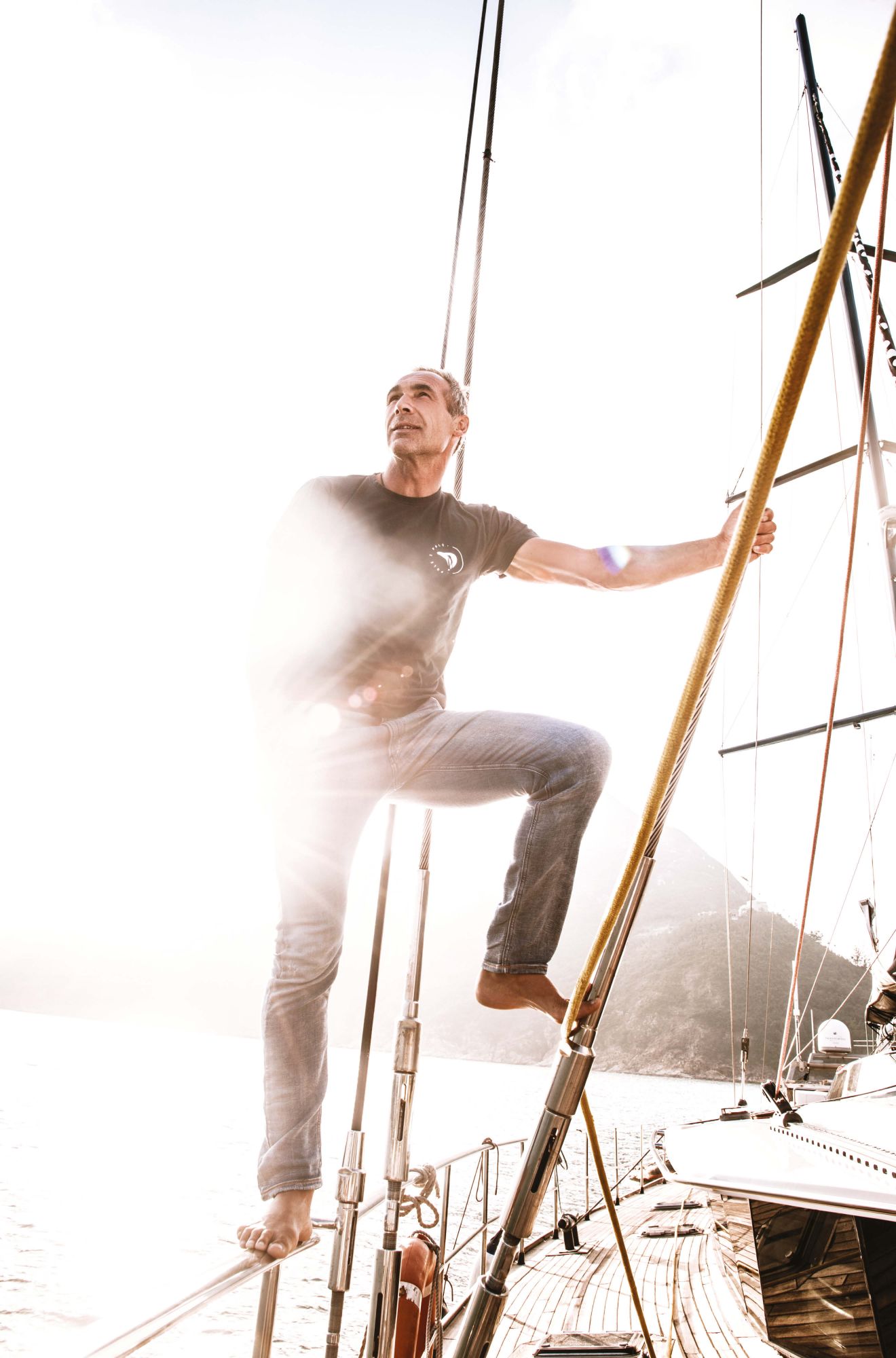It was clear from his childhood that Mike Horn would be an adventurer. Now, as he’s about to set out from Hong Kong on the climax of another gruelling expedition, he talks about life—and the risk of death
A sleek grey racing yacht with bright blue masts has spent several months anchored in Deep Water Bay. Pangaea and her owner, South African-born adventurer Mike Horn, are enjoying some R&R after sailing three-quarters of the way around the world on an expedition destined for the record books.
Known as Pole2Pole and begun in May 2016, this adventure involves making a circumnavigation of the globe via both poles. It is actually a series of distinct adventures. Last year, for example, the 52-year-old made a historic solo 57-day, 5,000-kilometre unsupported ski-born crossing of Antarctica as part of the expedition.
“As long as I’m alive, everything is going well,” says Horn, who was once a member of a group of 12 adventurers, 10 of whom have since lost their lives. “I’m very fortunate and very lucky to have been able to survive for so long, but that does not mean that I will survive the crossing of the North Pole.”
The next step is to sail from Hong Kong to the Kuril Islands north of Japan, on to the Aleutian Islands and across to Alaska. Over summer, he will sail through the Bering Strait and as deep into the Arctic Ocean as possible—before walking on the ice via the North Pole to Spitsbergen in Norway’s Svalbard archipelago, potentially via Greenland, depending on the ice drift. Then he’ll sail back to Europe to complete the global circuit. But the North Pole could prove tricky. The ice could break up, sending Horn into the ocean, where there’s little chance of survival.
“Pole2Pole is an accumulation of my knowledge from 25 years of exploration,” says Horn. “It’s like growing up. You crawl and then you walk, then you run and then you sprint. You can only do these things if you have a little bit of knowledge and experience. Those things allow you to dream a little bigger and to grow your life as an explorer.”

